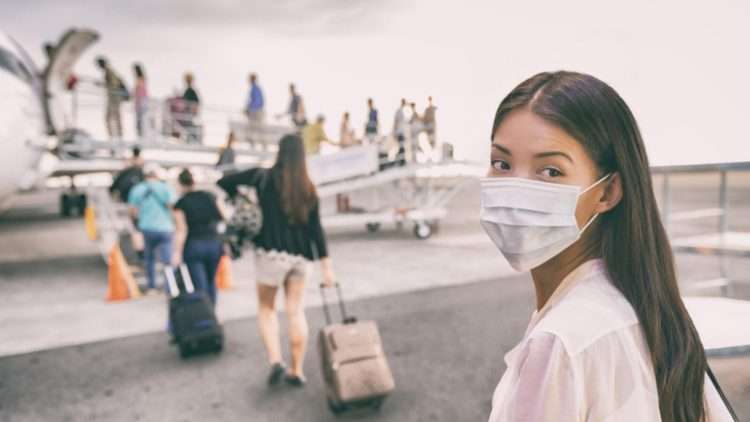On the evening of the 15th of March 2020, South Africans sat patiently waiting for our President of the Republic of South Africa, Cyril Ramaphosa, to address the nation on the current state of Coronavirus in Cape Town and the rest of the country as well as the very important next steps to be put into action to contain the viral spread as well as the number of people infected by COVID-19. Ramaphosa declared South Africa to be in a ‘National State of Disaster’ and as a result, implemented tough new measures and regulations to stem the spread of the Coronavirus COVID-19 within South Africa.
Together with the National Government, the Western Cape Government’s health teams have been working around the clock to respond to the COVID-19 outbreak most optimally and effectively. Dedicated work-streams are meeting regularly to ensure that all the Government’s efforts are focussed on staying ahead of the current coronavirus outbreak. The Western Cape Government, in close partnership with the National Government is therefore, doing all they can to stop the spread of the Coronavirus COVID-19 and prevent any further contaminations and infections from taking place.
However, just as the National and Western Cape Government has an immensely important role to play in the management and containment of COVID-19, we call on every South African to step up to the plate and do all they can to make all the necessary precautions to protect both themselves and their families from the viral spread. It’s time for us all to unite as one nation in the fight against Coronavirus COVID-19. At the end of the day, we are ALL in this together!
In addition to the measures and regulations implemented by the National government, there are a variety of precautionary measures and safety practices you can put in place to ensure your safety, as well as that of your family. These safety measures and precautions have been proven to significantly reduce your chances of contracting the Coronavirus COVID-19, or spreading it to others in the process.

Here are some additional information on the Coronavirus COVID-19 in Cape Town as well as some important safety, travel and hygiene tips that you can implement.
What You Need to Know
- If you do present with any flu-like symptoms, it is important not to panic. Take the necessary precautions and please self-quarantine (which means you must limit your contact with others) to prevent any further or potential spread of the COVID-19 virus.
- Please call the National Coronavirus Hotline: 0800 029 999, the Provincial hotline: 021 928 4102 or WhatsApp “Hi” to 060 012 3456 if you need any further assistance or feel like you might have contracted the COVID19 virus or suspect that you have been in contact with someone that has either contracted the COVID-19 virus or is displaying symptoms of having the COVID-19 virus.
- In addition to the above-mentioned hotlines, you can also contact your health practitioner for further advice on what to do next.
- If you do feel unwell, it is highly recommended and advised that you stay home and follow the self-quarantine protocol. Except to get medical care as directed by the hotline or advice given to you by your healthcare practitioner. Do not go to work, school or other public areas to prevent any potential spread of the COVID-19 virus.
How to Disinfect Your Space on an Airplane
There is no doubt that travelling can be a daunting experience during these uncertain times. However, there are a variety of adequate hygiene and safety precautions and measures you can implement to ensure your safety and protection from contracting the coronavirus when traveling. Here are a few safety tips on how to clean and disinfect your space on an airplane and keep safe and healthy while travelling to Cape Town.
ALWAYS keep your hands clean and refrain from touching your face throughout the flight
When travelling on a plane it is incredibly important to sanitize and disinfect all surfaces on the plane that you will be in contact with during your flight. However, that is not enough! In addition to wiping down and sanitizing your airplane seat and surrounding areas, you absolutely must do it in conjunction with washing/sanitizing your hands and following other best practices to curb infection and contamination.
Andrew Mehle, associate professor of medical microbiology and immunology at the University of Wisconsin Madison stated that “Wiping down surfaces on a plane won’t hurt, as long as it doesn’t give you a false sense of security”, thereby implying that everything should be done in conjunction with regularly disinfecting and sanitizing your hands for it to be successful. It has been proven that the coronavirus can last on surfaces like tray tables, touch screens, door handles and faucets for far longer than people think. While other studies found that other coronaviruses, like SARS and MERS, stay on metal, glass, and plastic for up to nine days. By using a disinfectant on hard surfaces AS WELL AS washing your hands thoroughly with soap (for at least 20 seconds) or disinfectant will kill the virus and significantly reduce your chances of contracting COVID-19.
However, where the biggest potential of possible transmission comes into play is the fact that people touch their faces far more often than they realise. Doing so after touching a surface where there are droplets from when someone sneezed or coughed can lead to the virus being passed on. That’s why washing and sanitising your hands properly whenever you’ve come into contact with a potentially contaminated area or object (or any area/object) is so incredibly important to your safety.
If you have the opportunity, make sure to choose the window seat
A study from Emory University found that during flu season, the safest place to sit on a plane is next to a window. In addition, researches also studied a variety of passengers and crew members on 10 three-to five-hour flights and observed that people sitting in window seats had less contact with potentially sick people. Therefore, by choosing a window seat you can significantly reduce your chances of coming into contact with someone that might be infected by or be a carrier of the Coronavirus. Other important steps to take include trying not to move around too much during the flight to avoid contact with others, stay hydrated and keep your hands away from your face and any potentially contaminated surfaces – ALWAYS be vigilant about your hand hygiene!
Disinfect all hard surfaces when travelling
As mentioned, the Coronavirus COVID-19 can stay on tray tables, touch screens, door handles, airplane seats, and faucets as well as other coronaviruses, like SARS and MERS, can remain on metal, glass, and plastic for up to nine days. It is therefore absolutely crucial that as soon as you arrive at your airplane seat and your hands are clean and have been properly sanitized (which once again is INCREDIBLY important), that you make use of disinfecting wipes to clean all the surrounding hard surfaces at your seat including the head and armrest, the seatbelt buckle, the remote, screen, seat back pocket, and the tray table. If the seat is hard and nonporous or leather or pleather, you can wipe that down too. When it comes to the disinfecting wipes you use, they typically say on the packaging how long a surface needs to stay wet for them to work. That time can range from 30 seconds to a few minutes. For the wipes to work, you need to follow those time requirements.
Although, wiping and disinfecting your airplane seat and all the surrounding surfaces are crucial, it is important to remember that “the coronavirus is not going to jump off the seat and get into your mouth,” as stated by Dr. Milestone. However, you should be far MORE careful of touching something dirty or coming into contact with someone or touching an object that may be potentially contaminated and then putting your hands on your face. So, once again, appropriate and REGULAR hand washing and sanitising (especially when touching objects and surfaces around you) truly is the key to ensuring your safety from contracting the Coronavirus COVID-19.
Insider tip: It is CRUCIAL to carry a hand sanitizer and appropriate and effective disinfectant wipes along with you wherever you go. And that counts for if you’re travelling or not.
World Health Organisation (WHO) Additional Travel tips
- When travelling avoid close contact with people, especially those who are coughing and showing signs of suffering from a fever.
- Wash your hands by using alcohol-based hand rub, sanitizer, and disinfectant or soap and water for at least 20 seconds. ALWAYS wash/sanitise your hands after touching any objects or surrounding surfaces in the airplane.
- Avoid touching your face, eyes, nose or mouth especially if you have not sanitised or cleaned your hands to the proper standards after coming into contact with someone or touching a surrounding surface or object.
- If you are experiencing any potential signs and symptoms of coughing or having a fever, you must avoid travelling entirely.
- If you have a fever, cough and having trouble breathing you must seek medical care early or contact any of the before mentioned hotlines as well as share any previous travel history with your health care provider.
- Always put social distancing in place by staying at least 6 feet away from people.
Why You Should Opt For a Self-Catering Accommodation During the Coronavirus COVID-19 Outbreak in Cape Town
Property management companies are staying ahead of the nationwide Coronavirus scare and urging the public not to panic. By staying on top of the latest health and safety protocols and recommendations from the World Health Organization (WHO) in addition to local advisories, self-catering apartments have become a much safer option when it comes to the potential spread and contamination of the COVID-19 virus when travelling.
When staying in a self-catering villa, house or apartment you can rest assured that the owner or property manager has implemented all the necessary safety, health and hygiene precautions and measures as stated by the World Health Organization before your arrival. You will, therefore, arrive at a property that meets all the necessary health and hygiene standards and has been thoroughly cleaned and disinfected to the highest of standards.
When staying in a self-catering accommodation, you have full control over who enters and exits your house, villa or apartment during the duration of your stay. You will eliminate the risk of coming into contact with potentially infected COVID-19 individuals, carriers or crowds of people as you are staying in a stand-alone property. As opposed to a hotel where other individuals are staying as well and are free to come and go as they please. In addition, staying in a self-catering accommodation also eliminates the risk of touching any surfaces that may have been previously touched by others or potential COVID-19 infected individuals.
During your stay, you can take it upon yourself to ensure that all surfaces and surrounding areas and spaces within your self-catering home are cleaned, disinfected and sanitised to your exact standards at all times throughout your stay. You also have the option of getting the highly trained and experienced cleaning staff to assist in ensuring that cleanliness and hygiene are always of the highest standard within your apartment or villa.
You have full control over who you come into contact with during your stay. This is because the only people staying in your self-catering villa, house or apartment are those that you personally invited. It, therefore, eliminates the potential of coming into contact with anyone that may be a carrier of the COVID-19 virus. Staying in a self-catering apartment during your stay in Cape Town gives you and your family far more freedom and peace of mind.
What Self-catering Accommodation Owners Are Doing to Stay Ahead of the Coronavirus COVID-19 Scare
Owners of self-catering accommodation are taking every possible and necessary precaution to stay ahead of the coronavirus outbreak in Cape Town and South Africa to ensure their guests always feel safe. This includes implementing all the latest health and safety protocols and recommendations from the World Health Organization (WHO) in addition to local advisories, owners of self-catering properties can create a safe and sanitized environment for their guests.
Here are some additional measures that are being implemented by owners of self-catering properties/villas and property management companies to stay ahead of the coronavirus scare and ensure guest’s safety and curb the potential spread of COVID-19:
- Owners and property managers are implementing all the necessary health, safety and hygiene measures and precautions to prevent all contamination and spread of COVID-19 from taking place.
- They are optimizing operations for health and safety and optimal cleaning protocols to minimize health risk and potential contamination through stringent cleaning protocols.
- Cleaning staff are adequately trained to implement enhanced cleaning and sterilization protocols and measures. Extra care is taken to properly sterilize and dis-infect all surfaces, objects and surrounding areas that are accessible to guests. Additional cleaning inspections are also implemented to ensure that the highest level of cleanliness as achieved and maintained.
- Owners and property managers are offering any additional assistance to guests wherever and whenever needed to ensure they always feel comfortable and safe. Thereby encouraging open channels of communication for any concerns or requests guests may have.
- They are making use of Reservation Reports to determine if and when they might be expecting guests coming from areas indicated as high-risk by the WHO. This way they’ll be able to prepare accordingly and take the necessary precautions and measures as indicated by the WHO.
- Property management companies are implementing more lenient cancelation policies. This way travellers can feel more secure booking the property.
Ways to Give Your Apartment a Deep Clean Amid the Coronavirus Pandemic
Although a clean house, villa or apartment has always been top-of-mind for any homeowner, property manager or individual living in a particular space. With the Coronavirus COVID-19 outbreak, it has become more important than ever before to take your home cleaning regimen to the next level as COVID-19 brought a new focus on washing and disinfecting at home, as well as at work.
Since there is still so much unknown with regards to the virus, it isn’t entirely possible to give a definitive answer as to what kind of deep clean, if any, would eradicate it. However, it is incredibly important and more beneficial to take action wherever and however you can. The kitchen, in particular, is one part of the house that is of particular concern. It has been suggested that there are a variety of cleaning and disinfectant products sold in supermarkets that can kill coronavirus on surfaces and recommend first cleaning the surface as usual and then using a disinfectant. Particular attention should be paid to counters, table-tops, doorknobs, bathroom fixtures, toilets and toilet handles, phones, keyboards, tablets, and bedside lamps. This also includes anything people within the house come into contact with regularly and can act as a potential ‘vehicle’ for infection.
Here are some important cleaning and disinfectant tips to give your apartment a deep clean in the midst of Coronavirus
- Get rid of textile cloths, mops, tea towels, and sponges, as those are a breeding ground for bacteria and viruses. Rather use disposable ones instead, including good quality kitchen roll. If this is however not an option, make sure you wash the more durable kind of cloths regularly at 60 degrees.
- Use detergent and hot water on countertops and focus on fixtures that get a lot of hand traffic. These include obvious ones such as toilets, sinks, taps and door handles, the front door but also less obvious ones such as keyboards, phones, remote controls, and light switches.
- Wear disposable gloves and a plastic apron when cleaning surfaces, clothing or bedding. This adds an extra layer of protection. It is important however to clean your hands properly after you take off your apron and gloves and dispose of them appropriately.
- Floors should be washed regularly, daily is ideal! When cleaning or washing your floors it is always important to clean the dirtiest areas in your home last.
- If you do unfortunately have a risk of infection in your home, it is essential to take the necessary safety precautions. Make sure everyone has their personal hygiene items such as towels and facecloths, and don’t share razors any similar object that could risk spreading the virus.
- If you touch something you know is soiled or may potentially be infected, wash your hands with liquid soap and keep the infected person’s clothes, sheets, pillows, and linens away from the rest of the laundry to wash separately. As with towels, wash at 60 degrees or more and tumble dry clothes at as high a temperature as possible.
- If you have a carpet in your house, you should think about getting them professionally steam-cleaned or invest in a carpet cleaner and use a disinfectant shampoo. Introducing a strict no-shoes policy is also a great idea if you have small kids rolling around on the floor.
Stay safe and healthy out there! For more information about your reservations or booking a villa for your stay in Cape Town, please get in touch with us today! If you need help planning your next holiday in Cape Town, you can also contact us and we can help you plan your stay, book a world-class restaurants in Cape Town along with tour activities, car hire and everything else you could ever need.





